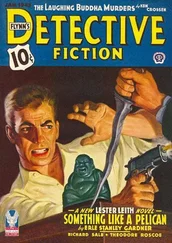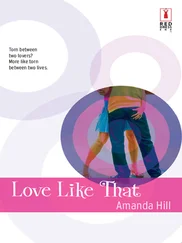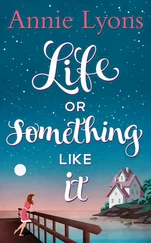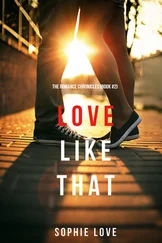
It started to rain on the drive to the hotel. A few fat drops at first, which struck the earth like bird shit. Then churning wind, dust spraying the windshield, sand gritting in my eyes and between my teeth. The water came in hard, a pounding roar. We had wound up the windows; the glass was misted over. Few cars appeared out of the muffled night. Raindrops glinted in the truncated beam of the Saab headlights. Babasegun was hunched forward, his nose almost touching the steering wheel, his hands latched tight around it. I hoped he could see where he was going, because I couldn’t.
I looked up when I heard him curse, but it was too late, the pothole was right in front of us, a rite of passage. The front of the car dipped, the underside scraped the road, and the tires spun, throwing up waves of muddy water. Babasegun yanked the gearstick and throttled the car. The engine whined, the car bucked like a rodeo bull, and then clambered out of the pothole. Moments after my shout of joy, the engine coughed, shed horsepower, stalled, and then fired up again. The chassis lurched forward. The engine grumbled and hissed and spewed angry white steam clouds. Then the car rolled to a stop, raindrops drumming the roof.
“Kai!” Babasegun exclaimed, and smacked the steering wheel with the flat of his hand. He turned the key, rattled it — nothing.
“We’re in the middle of the road.” I turned my head to see if headlights were approaching.
Babasegun muttered under his breath. He set the gearstick in neutral, threw open the door and stepped out, wedged his shoulder against the doorframe and strained forward, guiding the steering wheel with his right hand. I remained seated. If he didn’t ask, I wouldn’t offer.
By the time he slid into the driver’s seat and pulled the door shut, he was drenched. Water rolled down his face and neck, his arms, dripping onto the seat, pattering the rubber floor mat. He turned to me and said, “We’ll have to leave the car here. We won’t find okadas at this time, not in the rain. We’ll have to walk to the taxi park behind Town Hall. It’s not far.”
He gave the car a quick onceover, then placed his hand on the door handle. “Ready?”
“For what?”
“To go, it’s getting late.” He drew his mobile phone from his right hip pocket and looked at the screen. “It’s past eleven.”
I folded my arms across my chest. “There’s no way I’m going out in that rain.”
“Ah!” Babasegun sank back into his seat, raised his hand and rubbed his cheek. “This kind of rain doesn’t stop for hours — we’ll be here all night if we wait.” I remained silent. “Please,” he said. “I’ve already stayed out too late. My wife traveled yesterday. My boys are alone at home.”
“I can’t go out in that rain. You can leave me. I’ll lock up and return your key tomorrow.”
“I can’t do that, I can’t leave you here,” Babasegun said in a sullen voice. He rested his forehead against the side glass. “This rain won’t stop today. Look, it’s getting heavier.”
It was. The car was hemmed in by walls of water.
“Is that your final decision? That we should wait out the rain?”
“I have to. I’m sorry.”
“Okay, I give up.” He reached for his phone and punched in a number, then held it to his ear. “Answer, answer,” he muttered under his breath, tapping the steering wheel with his free hand. “Hello?” he said in a relieved voice. “Joke?”
I stared at him in amazement.
“I have a problem. My car broke down and I’m stuck in this storm. Long story, I’ll tell you later. The children are alone at home.
Mama Wasiu traveled. Can you go to my house right now? The key is where I usually leave it, under the big flowerpot.”
He listened. I strained to hear.
“Send them to bed. You sleep in my room,” he said. “I’ll see you in the morning. Don’t forget to take along your school uniform so I can drop you off. Your toothbrush is in my toilet bag. Okay, bye.”
He tossed the phone on the dashboard, and stared out through the windshield, silent. I too remained silent, thinking. Then I cleared my throat.
“Tomorrow’s the last day of my workshop,” I said. “The club is organizing a farewell party at the bar opposite my hotel. Starts at five.”
“When are you leaving?” he asked.
“Early the following day — car’s already booked. It will pick me from the hotel at eight.”
He was silent a moment. “At least we can agree on one thing.”
“What’s that?”
“You like Trophy.”
“I do! I’m a fan now.”
He laughed. Lightning flashed. I caught a glint in his eyes. And then his profile, black in the dark.
He asked, “What about Wunmi? Do you still want her?”
“Yes. I meant to ask your advice about that.”
“Okay then, listen up. .”

His plan worked. Wunmi was everything I wanted — especially with the knowledge that the first time was the last. My only regret was that I couldn’t chat about it afterwards with Babasegun over a cold bottle of Trophy, or over the phone.
Babasegun did not attend my farewell party and he did not pick up my calls. The last time I spoke with him was in that car, the black vinyl-upholstered Saab that in my mind was linked forever with Tupac’s music. Two men in a dead car in a rainstorm in a sleeping town, chatting long into the night, until we grew drowsy from the sound of our voices, until I climbed into the backseat and curled up in sleep, and woke up the next morning to find a bright new sun staring at me through the rain-washed windshield, and Babasegun gone.
The Little Girl with Budding Breasts and a Bubblegum Laugh
He began to love her when she was nine and had breasts the size of tangerines. She was still in her impetuous phase — she dashed about the house in her underclothes and shrieked with laughter. He was her cousin, her big brother; he was fifteen years older than her. Nobody saw anything suspicious when he clasped her under the arms and spun her — squealing and kicking — in a maypole circle, then pressed her to his chest, all the while grinning like a Nok mask to hide the consternation that her milk-and-sugar smell, her puppy warmth, awakened in his belly. When she was eleven and he came to visit because his uncle, her father, was lying on the sickbed, he placed her on his knee and stroked her legs till she roped her arms round his neck and suffocated him in a cloud of peppermint sniffles and talcum sweat. That night, while he fondled himself, her father died.
The week she turned fourteen she came to live with his family. By this time her mother had remarried and they now called her a problem child. It was true: she was no longer the happy person he had known. She had secrets and acne eruptions, mood swings and no-sugar days. When his female friends visited she fell into bottomless silences, she darted furious glances at him, but when he tried to pacify her by reviving their games from the past, she told him, every time, fuck off. She wore makeup, she dressed like a woman. She locked herself in the bathroom and wouldn’t emerge until the whole house was bathed in the dead-flower scent of cheap cosmetics. Her mobile phone was her constant companion and confidante: she would curl up in her favorite corner of the sofa and murmur into it for hours; or sit hunched over the screen and with wild boneless fingers tip-tap the number codes to some life-or-death game; or plug in her earphones and — swinging, bobbing, wiggling her head — mouth the lyrics of “Whenever, Wherever” as she sleepwalked through chores. She hated rules, restrictions, convention. His mother was always complaining of her insolence, always warning her against the dangers of the street, against friends who had no home training.
Читать дальше
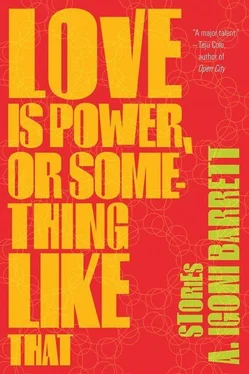

![Сьюзан Кейн - Quiet [The Power of Introverts in a World That Can't Stop Talking]](/books/33084/syuzan-kejn-quiet-the-power-of-introverts-in-a-wo-thumb.webp)
